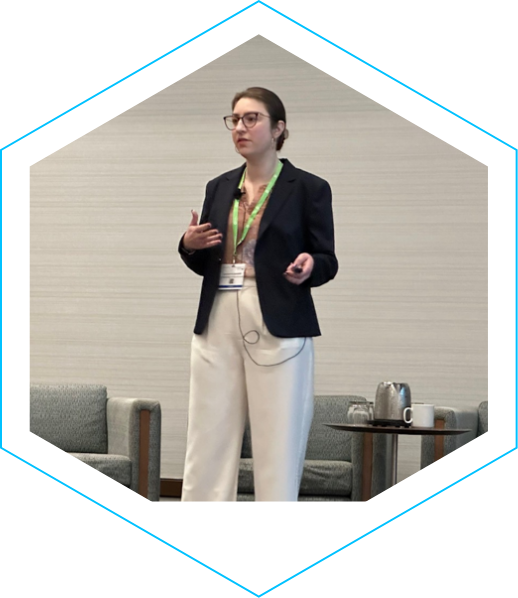
Molecule to Medicine
Event overview
The aim of this NEW course is to provide attendees with a good basis to work from when involved in taking development candidates to the first in human trials with a view also on some longer-term requirements. The course content will therefore focus on the necessary early phases of chemical development as would typically be required to support production of up to about 2kg using laboratory-based 20L equipment and pilot plant equipment. The course will introduce and discuss the following:
> Requirements in order to move from small (<1g) supplies to the first 100g or so for preclinical work
> Further scaling to 1-2kgs non-cGMP
> Requirements to make material for use in clinical trial – an introduction to cGMP coupled with the scaling issues
> An overview of the requirements to move processes to fixed vessels, assuming cGMP is required – what operations can readily be transferred and those that should ideally be developed out
> The importance of physical form selection, understanding and control
> Impurities and their control, with specific discussion on genotoxic impurities and developing the specification for the API as it moves from preclinical batch preparation to cGMP batches for clinical trials.
Course Outline
Session 1:
Introduction to typical pharmaceutical development activities and timeframes for toxicological studies. Explore the interface between discovery chemistry and development- what can we learn from each other? Key interactions between medicinal chemists and process chemists. Discuss how rapidly we can we move a molecule into phase 1, the planning required to expedite the process and staying on top of compound supply. Communication, working with other
disciplines and managing expectations. How to plan for the unexpected. Contingency planning and redundancy in material supply.
Session 2:
Making the first 100g non-GMP batch for GLP toxicological studies; discussion of topics such as setting the specification, the use of chromatography, accessing starting materials, identifying how much development to do.
Session 3:
Non-GMP vs GMP preparation. A brief introduction to GMPs and how they impact on the initial chemistry scaling exercise.
Session 4:
Physical version and form, spending time on the importance of salt selection, especially in the early phases of development with form/polymorph considerations also being discussed. There will be a brief introduction of polymorphism and which aspects of physical form should ideally be established at the early phase of development.
Session 5:
Process safety and raw materials supply issues and how these might impact on the chosen route.
Session 6:
Review of the day and questions.
Session 7:
Scaling into fixed vessels with discussions about those operations that transfer well and those which typically do not.
Session 8:
Technology transfer and a discussion of the issues and suggestions to mitigate against them.
Session 9:
A presentation about genotxoic impurities – what are they, what are the suggested control levels, how well do chemists identify them?
Session 10:
A presentation about impurities, including their identification, isolation/ preparation and control with discussions about setting specifications.
Session 11:
The final session of the course will review the two days and follow-up on any questions.
Case Studies and Problem sessions will also be included and audience participation is encouraged throughout the course.
Key Learning Opportunities
- How long does it take to get from milligrams to 1-2kgs suitable for human clinical trials?
- What are the main hurdles?
- What can be left out and what must be included?
- What are the key and strategic Project managers and those
involved in technical outsourcing
Who Should Attend
- Project managers and those involved in technical outsourcing
- Project leaders and bench chemists involved in preparation of material
- New starters to the area
- Medicinal Chemistry support teams involved in making the first batches for toxicological evaluation
What's Included
The course fee includes:
- comprehensive course manual
- coffee/tea refreshments breaks throughout each day
- buffet lunch each day
- course dinner on the first evening
- course certificate
Other Information
General Information
Each course includes:
- Refreshments & lunch daily
- Dinner on the first evening*
- The comprehensive Course Manual
- Course Certificate
Please refer to the course brochure for detailed timings.
*Not every course includes dinner please refer to the course brochures for detailed information on what’s included.
Course Certificate
At the end of each course participants receive a Certificate of Attendance – signed by your tutor.
Accommodation
Depending on venues we either reserve a limited number of bedrooms at a special rate for you or we will provide a list of recommended hotels close by to the course venue. More information on rates and booking forms will be provided upon booking. All rooms will need to booked directly with the hotel.
Discounts
1st delegate = full price
2nd delegate = 5% off
3rd delegate = 10% off
4 or more delegates = 15% off
For more information on discounts do give us a call on 44 1435 873 062
Molecule to Medicine
Fee info
It was good. Never visited a Scientific Update conference, but will get it on my priority list. Very good – like the set-up, flow and topics. Very interested in process development.
Organic Process Research & Development Conference Delegate 2023
Thank you for the excellent conference. I enjoyed the scientific content and the networking opportunities. I will definitely recommend this conference to my colleagues.
The Formulation and Drug Delivery Congress Delegate
Become a speaker at one of our events
Share your expertise with a global audience of industry professionals. Scientific Update is continually seeking thought leaders and industry innovators to speak at our renowned conferences and training courses.








